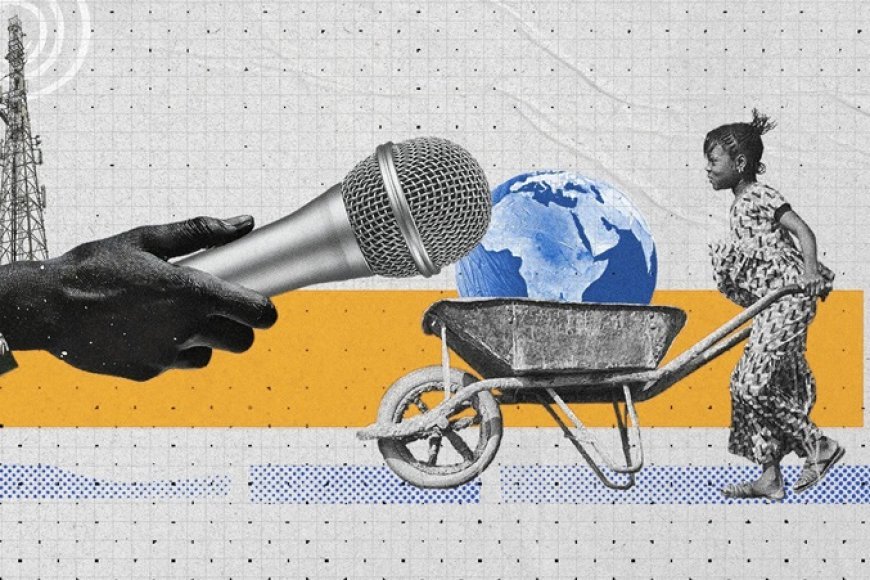summary
There is a great need to improve and support reporting of climate change impacts and stories in Africa. The continent is disproportionately vulnerable to the effects of climate change, experiencing more frequent and intense floods, droughts and storms, but the amount of media coverage, especially from international sources, is It does not reflect this urgency. This lack of attention contributes to the marginalization of African perspectives in the global dialogue on climate change. Local journalists have an important role to play in bridging this gap, providing a nuanced understanding of the different impacts and solutions occurring within their communities.
Local journalists are taking the lead in bringing climate change to the forefront. Projects like South Africa’s #PowerTracker initiative investigate the social and environmental impacts of the transition to renewable energy. Other journalists are raising awareness about the interconnectedness of climate change, biodiversity and conservation, while others are advocating for greater transparency and access to climate data. The work of these local journalists can directly inform policy-making and help communities adapt to the challenges of climate change.
However, there are several bottlenecks that impede the effectiveness of local climate change reporting in Africa. Lack of funding remains a major barrier, limiting journalists’ access to resources and limiting their ability to conduct in-depth investigations. Sub-Saharan Africa lags behind other regions in per capita spending on weather and climate information services. Their work is further hampered when access to data and information is often limited by bureaucratic obstacles and the high costs of scientific publications. Journalists also face concerns for their safety and well-being, particularly those covering areas affected by extreme weather events, environmental degradation, and political instability.
Beyond these challenges and obstacles, overemphasizing the crisis and portraying the continent as a powerless victim in need of external intervention undermines local agency and challenges African communities to develop. It obscures innovative solutions. Focusing on negative frames can also lead to fatalism about climate change and discourage proactive action.
If we are to achieve a more impactful and robust reporting culture on climate change in Africa, we need local journalism, including covering the attendance of African journalists at events like the Conference of the Parties (COP). More investment will be needed to provide sustainable financing. They can actively participate in current global debates and negotiations on climate. Another urgent intervention is to strengthen institutions that ensure the protection and safety of climate reporters. Access to data and information needs to be improved, and resources aimed at journalists, such as ‘journalist briefs’, need to be developed to summarize complex scientific facts into a more communicable format. Improving the capacity of journalists and editors through training, workshops and mentorship programs will further create an environment in which they can develop the skills to effectively report on the complexities of climate change.
Importantly, localizing climate change knowledge and reporting is critical. This includes tailoring messages to resonate with specific cultural and social values, translating information into local languages, and incorporating indigenous knowledge and perspectives. This approach fosters public participation and understanding and empowers local communities to take ownership of climate action. A shift is needed from crisis-driven reporting to showcasing local solutions and emphasizing the resilience and ownership of African communities.
Strengthening climate change reporting in Africa requires international cooperation and support. Partnerships with local and international journalists and news organizations to foster knowledge sharing, provide access to resources and amplify African voices on the world stage are also critical. By investing in and empowering local journalists, the international community can recognize the unique challenges and opportunities facing Africa and create a more informed response to the climate crisis that centers the voices of those most affected. We can support fair treatment.
Recommendations for journalists and media houses Highlight local context and indigenous knowledge to keep climate communication local. Focus on balanced climate reporting by highlighting solutions, not just crises. Strengthen investigative reporting. Strengthen journalist networks and partnerships. Promote and enforce ethical climate change reporting practices. Recommendations for national and international policy makers and stakeholders: Invest in the capacity building and training of local journalists. Improve access to reliable climate information and data. Protect journalists who report on climate change. We provide long-term and flexible funding. Support the institutionalization of climate change reporting and storytelling across diverse news outlets.
To read the full paper, click “Download PDF” above.
About the author
Dr. Grace Mbungu is a Senior Research Fellow and Director of the Climate Change Program at APRI, which focuses on timely, evidence-based policy options that enable the creation of long-term, sustainable and inclusive well-being and livelihood opportunities. supports policy makers. Prior to joining APRI, Dr. Mbungu was a fellow and researcher at the Institute for Advanced Sustainability Studies (IASS) (now RIF) in Potsdam, Germany. She holds a bachelor’s degree in political science and gender studies and a master’s degree in public administration with a focus on human rights and international development from Bowling Green State University (Ohio, USA). She holds a PhD from the University of Stuttgart, Germany.
Sage George is an intern in APRI’s Climate Change Program and a graduate student at Humboldt University Berlin, where she participates in the Global Studies Program focused on diaspora studies and the functioning of intercultural dynamics at the global scale. I am. While traveling for the program, she witnessed the role that culture plays in climate change on a sociological level.
Isabella Roberts is a fellow and program officer at APRI. She holds a master’s degree in international relations and political science from the Graduate School of International Development Studies in Geneva, Switzerland, and a bachelor’s degree in African studies and international relations and political science from Wellesley College. Her research expertise extends to the area of political activism and dissent, particularly in the context of Africa and African diaspora politics.

